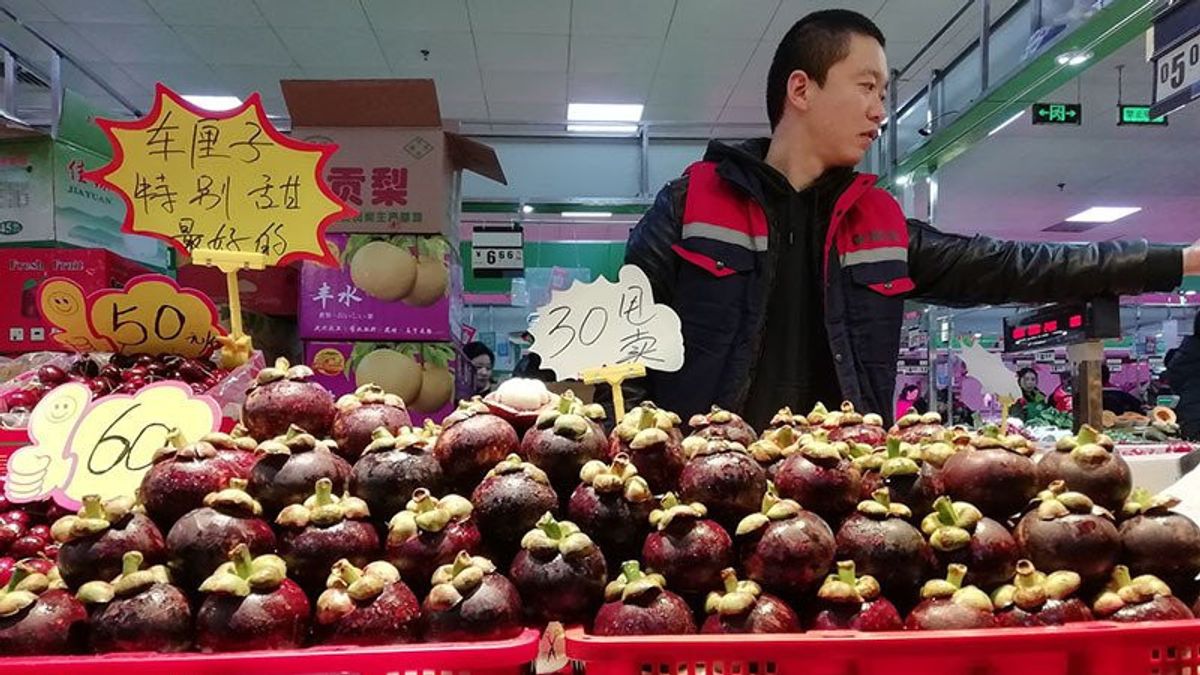JAKARTA - The Indonesian Food and Drug Supervisory Agency (BPOM) disseminated the latest regulations on food exports to China to micro, small and medium enterprises.
The socialization was carried out in a webinar held by the Representative Office of Bank Indonesia in Beijing and the Consulate General of the Republic of Indonesia in Guangzhou.
"Since we received a brafax (facsimile news) from the Indonesian Embassy in Beijing regarding Decrees 248 and 249 of 2021 from the GACC (Chinese Ministry of Customs), we have helped disseminate information to MSME actors," said Director of Supervision of Processed Food Circulation at the POM Agency, Ratna Irawati, Antara, Friday, June 24.
Several points regarding the two new regulations are the registration of production facilities for 18 types of food products set by the Chinese authorities with the help of competent parties in Indonesia and production facilities registered independently in Indonesia through the website.
"If it is approved, it will get an approval label that will be affixed to the product packaging. The approval is valid for five years and can be renewed by submitting an application to the GACC," he said.
To date, BPOM has helped 106 companies obtain GACC online registration accounts. By complying with the new registration rules, Ratna hopes that there will be no more exports of products from Indonesia that are refused entry by China.
In the webinar which was attended by hundreds of MSMEs, he said that on March 11, 2022, there were 104 units of Indonesian product ships that were refused entry by the Chinese authorities because they did not meet the requirements as stated in Decrees 248 and 249.
"Then on March 16, 64 shipments have been released and the remaining 40 are still on hold. Then on April 4, there are still four shipments that are on hold," explained Ratna.
Export certificates to China are the most widely issued by BPOM in 2021 and the portion reaches 19.5 percent of all Indonesian exports to various destination countries.
"Export business actors must always update their knowledge and communication with buyers and competent authorities in Indonesia and must be careful so that export rejection does not occur," he reminded.
Meanwhile, the Trade Attache of the Indonesian Embassy in Beijing Marina Novira Anggraini said that the exporting party would incur additional costs due to the delay in the export of commodity carriers.
"What is certain is that the exporter must pay a large amount of warehouse rental costs during the process of not clearing. Don't speculate with the new regulations in China if you don't want to suffer losses. First, clear up all the documents in Indonesia before exporting," he said.
The English, Chinese, Japanese, Arabic, and French versions are automatically generated by the AI. So there may still be inaccuracies in translating, please always see Indonesian as our main language. (system supported by DigitalSiber.id)













